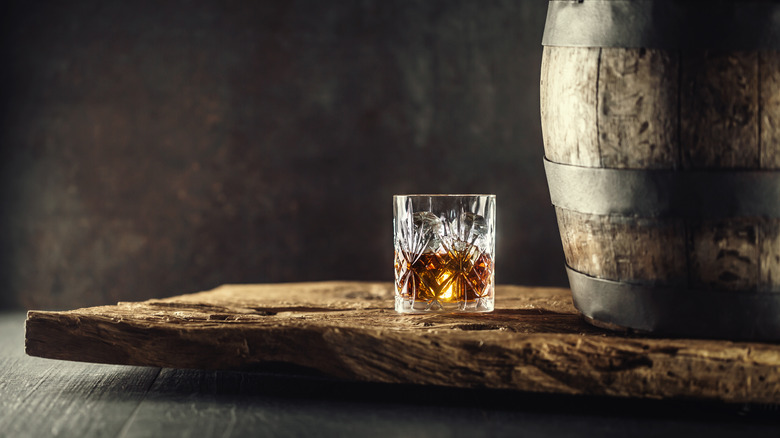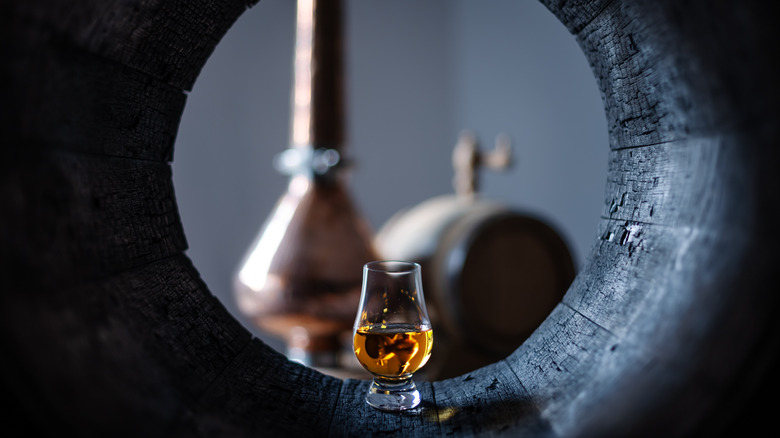What Is Sour Mash And Why Is It Important For Making Bourbon?
If you're at all familiar with bourbon, America's drink, then you might have come across the term sour mash. On some bottles of bourbon, it's even featured on the label. So, what exactly is sour mash, and what does it have to do with making bourbon?
First, let's start with what makes a bourbon. A "distinctive product of the United States" per Senate Concurrent Resolution 19, bourbon must be made in the United States, contain at least 51% corn in the mash (or the mixture of grain, yeast, and water that is fermented to make alcohol), and stored in new charred oak barrels. In addition, it can't have any additives for flavor or color other than water. However, what you can add is the old mash (also known as backset or stillage), which is the spent mash that's left over from a previous batch of bourbon. And that process of adding old mash during the production of a new batch of bourbon is known as sour mash.
The benefits of using the sour mash process
Much like using sourdough starter for making sourdough bread, using old mash helps to kick start the fermentation process for making bourbon. One concern when fermenting bourbon is bacterial growth when the pH is too high. Adding the acidic old mash will drop the pH levels that are ideal for efficient fermentation, while also minimizing the risk of unwanted bacterial growth. Using the sour mash process also has the added benefit of ensuring consistency between different batches of bourbon.
The sour mash process has been largely credited to Dr. James C. Crow, who was said to have invented, or at least refined, the process of using sour mash, while he was working at Oscar Pepper as their master distiller in the 1830s. Crow used the sour mash process on a daily basis when making bourbon for consistency, and his bourbon, known as "Old Crow," is said to be the first "modern" bourbon.
According to Whiskey Wash, nearly all major Tennessee whiskey and bourbon distilleries use the sour mash process, even if they don't list sour mash on the bottle itself. Not only is it an established process that has proven to provide consistency and avoid unwanted bacterial growth during the bourbon production process, but many of the specialized equipment in existing distilleries have already been configured to work with the sour mash process, notes Distiller.

